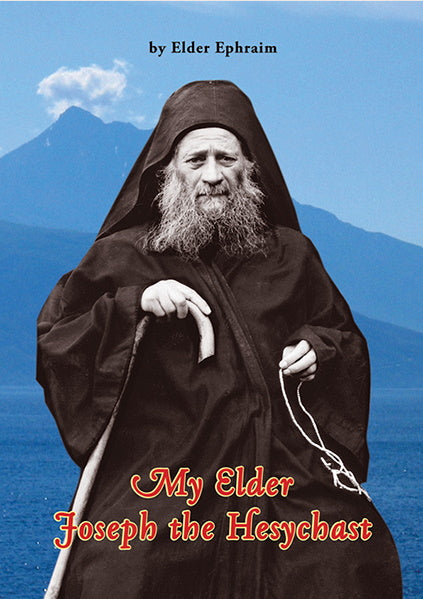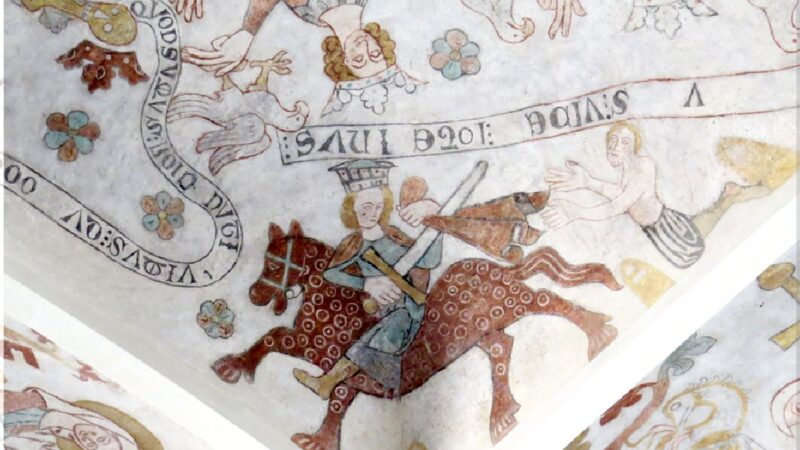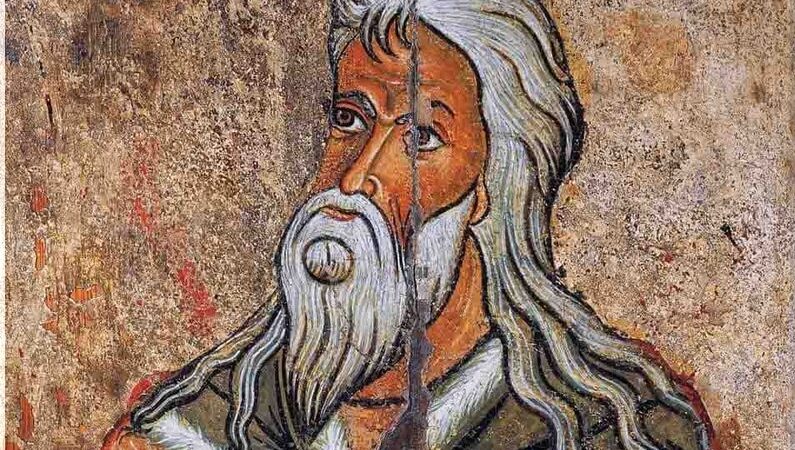Unpublished Anecdotes About St. Joseph the Hesychast. Part II.

As explained in Part 1 of these articles, the following stories were not included in Elder Ephraim’s biography of St. Joseph in any language.
During World War II, an international philanthropic organization sent several tons of canned food to Greece in order to help those who were homeless and starving because of the war. These supplies were not intended for ascetics who had put their trust in God and the Panagia. Nevertheless, it was decided locally that all the monasteries on Mount Athos would also receive some, and thus each brotherhood in Katounakia received a large hamper with 75 pounds of canned foods.
When Elder Nikiphoros heard about this, he was delighted and said to his disciple, St. Ephraim of Katounakia: “Go and get a hamper of canned foods for us, too!” But as soon as Elder Ephraim went and lifted it, he perceived that all his strength was drained—not his physical strength but his spiritual vigor. He felt in his soul a depletion of the divine wealth that he had accumulated.
Afterwards he went to St. Joseph and said: “As soon as I picked up that hamper, I felt empty. And now I feel as if I am just a biological mass of flesh and blood with no soul, like a brute beast.”
St. Joseph replied: “My child, do you know that I didn’t go and get a hamper? I had also heard about it, but I didn’t send any of my disciples to get one. I want to be fed by the sweat of my brow, by carving wooden crosses, not by things I didn’t earn. Besides, didn’t you realize that those alms were for people who had lost their homes in the war and were suffering? God took grace away from you because you took those alms without first asking Him in prayer to be enlightened whether or not you should take them. How could you go and take them?”
“But I’m under obedience!” objected St. Ephraim of Katounakia.
“I agree,” replied St. Joseph. “I’m not denouncing you. You had no choice. But your elder does not have such precise criteria. Nevertheless, God’s providence has allowed you to suffer this loss of grace, so that tomorrow you could teach your spiritual children that such actions are sinful. For God is always the same; He does not change His laws in different times. Human laws change in time. But the laws of God are steady and everlasting. As it says in the Bible: God is the same yesterday and today and forever (cf. Heb. 13:8).”
Another similar incident happened during World War II. The Greek submarine Papanikolis had torpedoed a Nazi ship full of hospital beds and supplies. The ship was so badly damaged that its crew had abandoned it. Nevertheless, the ship did remain afloat, and the waves brought it just two miles off the Holy Mountain. When the fathers at St. Anne’s Skete saw the red crosses on the ship and realized that it had been abandoned, they were delighted because they knew it would be full of useful supplies. So they announced the good news to everyone in the skete so that they could go with their rowboats and take whatever they wanted.
Since St. Joseph was living near St. Anne’s Skete at the time, he was also informed of the ship, but he refused to send anyone to take supplies from it. Everyone else in St. Anne’s Skete went and ransacked the ship, filling their rowboats with clean sheets, mattresses, medicines, surgical tools, etc.
That evening, St. Joseph saw a fearsome vision. He saw an angel of the Lord passing by all the huts of the skete, holding a paper with the following title: “THOSE WHO STOLE HOSPITAL SUPPLIES FROM THE SHIP.” The angel was writing on the paper all the names of the monks who had taken supplies from the ship. When the angel came to the hut of St. Joseph, he asked him with frowning eyes but a subtle smile: “Did you also take supplies from the ship?” St. Joseph exclaimed, “No! No, I didn’t, my dear angel!” Then the angel sweetly smiled at him, knowing all along that St. Joseph had not taken anything. It was clear to St. Joseph that everyone whose name was written would some day be accountable to God for what they had done.
Perhaps one could object that the monks who had taken supplies were not stealing anything from anyone. The point, however, is that monastics are called to higher standards of perfection, and they strive not to take anything they don’t deserve. This does not mean, however, that they cannot receive alms. After all, St. Joseph did accept alms when it did not entail taking something without permission. For during the Nazi occupation of Greece and Mount Athos, the Nazis decided to send boatloads of wheat to Mount Athos in order to help the starving monks. In this case, St. Joseph did accept to receive his much-needed fair share of the wheat.
When Fr. Athanasios Kampanaos was unsure if he should stay with St. Joseph, he asked him: “Is it God’s will for me to stay here with you?”
St. Joseph replied: “Do you want to know the will of God or the will of a man of God?”
Fr. Athanasios, being wise in spiritual matters, answered: “I want to know the will of a man of God.” He understood the spiritual danger of knowing God’s will and failing to execute it. Whereas if he fails to execute the will of a man of God, his spiritual responsibility is not so severe. He was aware that the devil would do everything possible to try to make him not execute God’s will if he knew it.
Then St. Joseph replied: “Since you want to hear the will of a man of God, I am advising you to return to your monastery because you have grown accustomed to a less ascetical lifestyle, and you won’t be able to manage here. Besides, in your monastery you will be able to serve the brethren with your medical knowledge, and that is sufficient for you.”
St. Joseph later confided in St. Ephraim of Katounakia: “In those days when Fr. Athanasios was asking for the will of God, I had such boldness in prayer that I could have asked God, and He would have informed me what His will was on any matter.”
Once when St. Joseph was living at the Small Skete of St. Anne, St. Ephraim of Katounakia noticed that they were using a lot of water to wash something that was not particularly important. So he said to St. Joseph: “Be careful, Geronda; it hasn’t rained for months, and your tank might run out of water.”
When St. Joseph heard this, he was grieved and gave St. Ephraim of Katounakia a look of deep disappointment and replied: “I have never uncovered the tank to see how much water is left. I leave this in the hands of the Honorable Forerunner.” St. Joseph was so disappointed in St. Ephraim because St. Joseph considered his rational approach to demonstrate a lack of faith in the care that the Forerunner had for them. What faith he had!
(by hieromonk Ephraim)



